What is a phobia?
Well, a summary of the definition is a “persistent and excessive fear”. The encyclopedic definition is as follows:
A phobia is a type of anxiety disorder defined by a persistent and excessive fear of an object or situation.[1] Phobias typically result in a rapid onset of fear and are present for more than six months.[1] Those affected will go to great lengths to avoid the situation or object, to a degree greater than the actual danger posed.[1] If the object or situation cannot be avoided, they experience significant distress.[1] Other symptoms can include fainting, which may occur in blood or injury phobia,[1] and panic attacks, which are often found in agoraphobia.[6] Around 75% of those with phobias have multiple phobias.[1] – Source: Wikipedia
There are other fears that are mistakenly called phobias that are really something else. (This is the focus on this commentary). See the continuation of the above definition:
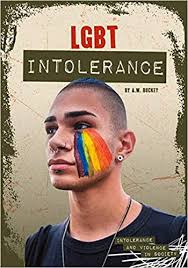
Several terms with the suffix -phobia are used non-clinically (usually for political or deterrent purpose) to imply irrational fear or hatred. Examples include:
- Chemophobia – Negative attitudes and mistrust towards chemistry and synthetic chemicals.
- Homophobia – Negative attitudes and feelings toward homosexuality or people who are identified or perceived as being lesbian, gay, bisexual or transgender (LGBT).
- Xenophobia – Fear or dislike of strangers or the unknown, sometimes used to describe nationalistic political beliefs and movements.
- Islamophobia – Fear of anything Islamic
Usually these kinds of “phobias” are described as fear, dislike, disapproval, prejudice, hatred, discrimination or hostility towards the object of the “phobia”.[53]
Don’t get it twisted, these are not fears; these constitute hatred. Prejudice, hatred and discrimination exercised in a persistent and excessive manner is truly toxic. Imagine being on the receiving end of such treatment, such irrational fear or hatred.
How much can you tolerate? How much should you tolerate? This is like having a burning cross on your front lawn. How long before you want to leave?

This is a continuation on the Teaching Series from the movement behind the 2013 book Go Lean…Caribbean, related to Toxic Environments. The pseudo-phobias – irrational fear or hatred – all contribute to unbearable circumstances at home; thusly they contribute to the Exodus of so many Caribbean people; this exacerbates the Brain Drain and societal abandonment in the region. We’ve got it bad!
Every month, the movement behind the Go Lean book presents a Teaching Series to address issues germane to Caribbean life and culture. For this month of September 2020, we are looking at the actuality of persecuted minorities in this homeland. Unfortunately, Toxic Environments have long reaching consequences on the community quest to live, work and play. This is entry 2-of-6; it presents the thesis that the “strong in society should not be allowed to abuse the weak” just to allay some pseudo-fears. This is an important consideration, as it depicts the heavy-lifting that the Caribbean stakeholders must do.
Consider here, the full catalog of the series this month:
- Toxic Environment: Ready for Football – Washington “Redskins”
- Toxic Environment: Homophobia – The problem is the Hate, not the Fear
- Toxic Environment: Opposite of Diversity & Inclusion
- Toxic Environment: Lessons from Yugoslavia
- Toxic Environment: Ease of Doing Business
- Toxic Environment: Make the Caribbean Great (Anew)
The Go Lean book, serving as a roadmap for the introduction of the Caribbean Union Trade Federation (CU), asserts that Caribbean stakeholders must do the heavy-lifting to mitigate and remediate societal defects. While the purpose of the roadmap is to optimize the economic, security and governing engines of society, the roadmap recognizes that we must retain people in the homeland. No people = no society = no culture. Therefore, we must have a good societal foundation; respect and protection of all people and their rights for life, liberty and the pursuit of happiness. The purpose of this month’s Teaching Series is to focus on that foundation. There is a glaring need for reform, as we have a long track record of bad behavior like hate, bigotry, xenophobia and intolerance in our Caribbean communities.
As related in the previous submission in this month’s series, the Caribbean has fostered a Toxic Environment in our culture; it has been so bad that these identified bad behaviors have flourished. This is not good, as a Toxic Environment pits villains against victims and in the long run, the victims – and all those that love them – will seek refuge elsewhere. This is true with all Toxic Environments – think Asylum-seekers. Asylum-seeking is the manifesting of the Push dynamics for Caribbean abandonment:
- “Push” refers to people who feel compelled to leave, to seek refuge in a foreign land. “Refuge” is an appropriate word; because of societal defects, many from the Caribbean must leave as refugees – think LGBT, Disability, Domestic-abuse, Medically-challenged – for their life, liberty and pursuit of happiness.
- “Pull”, on the other hand refers to the lure of a more liberal life abroad; many times our people are emigrating for societies that have better expressions of the rights for “life, liberty and the pursuit of happiness”.
The Caribbean is not the first nor the last Toxic Environment; there have been many in the past and even now in the present. Think Nazi Germany, who persecuted (i.e. Concentration Camps) many minority groups (Jews, Gypsies, homosexuals, etc.). Today, we have more bad role models of hate, bigotry, xenophobia and intolerance – like in the Muslim Word, (think ISIS), where persecuted minorities are frequently targeted. (There have been instances of public killing of convicted homosexuals).
We must look, listen and learn from these past and present Toxic Environments, then work towards making our society better – more tolerant. We cannot afford to keep losing our people; that will degrade our culture further. Using an analogy from medical trauma, our society is bleeding populations – we must stop the bleeding – otherwise the patient – our unique culture – will die.
How bad is our society? While not ISIS, we are recognized as one of the worst in our attitudes and toleration of homosexual practices.
Say it ain’t so …
This was our initial reaction in researching and writing about the Buggery Laws in the Anglo-Caribbean. Those laws seemed so barbaric for our modern times. And yet, they persists. A previous Go Lean commentary from July 2, 2015 identified this example of our severe Caribbean Toxicity. Consider this summary:
While this commentary directly targets Jamaica, the majority of the countries and overseas territories of the former British Empire, still criminalize sexual acts between consenting adults of the same sex and other forms of sexual orientation, gender identity and expression. This has been described as being the result of “the major historical influence” or legacy of the British Empire. In most cases, it was former colonial administrators that established anti-gay legislation or sodomy acts during the 19th century. … The majority of countries then retained these laws following independence.
Since that 2015 date, we have published a few additional commentaries that advocated for more tolerance for citizens – and visitors – with alternative life styles. Consider this list of previous blog-commentaries:
| https://goleancaribbean.com/blog/?p=20292 | Conscientizing on VIDEO: Advocating for Empathy |
| https://goleancaribbean.com/blog/?p=19217 | Brain Drain – ‘Live and Let Live’: Introducing Localism |
| https://goleancaribbean.com/blog/?p=17820 | Caribbean ‘Pride’ – “Can we all just get along” |
| https://goleancaribbean.com/blog/?p=14830 | Counter-culture: Embracing the Change |
| https://goleancaribbean.com/blog/?p=11224 | ‘Loose Lips Sink Ships’ – Leaders Undermine Tourism |
| https://goleancaribbean.com/blog/?p=10216 | Waging a Successful War on Orthodoxy |
| https://goleancaribbean.com/blog/?p=8200 | Respect for Minorities: Climate of Hate |
| https://goleancaribbean.com/blog/?p=8186 | Respect for Minorities: ‘All For One’ |
| https://goleancaribbean.com/blog/?p=341 | Homosexual Intolerance listed among blatant human rights abuses |
It is simple, if we want to grow our society, we must work hard to make it a better place to live, work and place for everyone, not just some people. Remember the old nursery rhyme: “rich man, poor man, beggar man, thief; doctor, lawyer, Indian Chief”.
It is Toxic to allow the “Strong to Abuse the Weak” – including LGBT – in our society.
Now is a good time to address those bad Buggery Laws that still prevail in the Anglo-Caribbean. It is apropos to Encore the full blog-commentary from July 2015; see that here now:
——————-
Go Lean Commentary – Buggery in Jamaica – ‘Say It Ain’t So’!
This commentary has asserted that the Caribbean region can be a better society than the United States of America. Yes, we can!
But to even start the discussion, we must first:
Live and let live!
 The topic of intolerance has been acute in the news as of late. We have the extreme example of the Islamic State in Iraq and Syria (ISIS) beheading non-Muslims because… well, just because. And the example of the US legalizing Gay Marriage may be considered too tolerant for some people’s good taste.
The topic of intolerance has been acute in the news as of late. We have the extreme example of the Islamic State in Iraq and Syria (ISIS) beheading non-Muslims because… well, just because. And the example of the US legalizing Gay Marriage may be considered too tolerant for some people’s good taste.
Where does the Caribbean fit in this discussion?
If ISIS is one end of a scale and Gay Marriage in America is another end, then one Caribbean member-state, Jamaica, would be closer to …
ISIS!
Yes, it is that bad. Say it ain’t so.
See Appendix-VIDEO’s below …
While this commentary directly targets Jamaica, the majority of the countries and overseas territories of the former British Empire, still criminalize sexual acts between consenting adults of the same sex and other forms of sexual orientation, gender identity and expression. This has been described as being the result of “the major historical influence” or legacy of the British Empire. In most cases, it was former colonial administrators that established anti-gay legislation or sodomy acts during the 19th century; see Appendix below. The majority of countries then retained these laws following independence.[1][2].
There is an effort now to transform society in Jamaica (and other countries) in this regards. There are Gay Pride Activities being planned for this Summer of 2015. See the relevant news article here:
Title: J-FLAG Is Planning Gay Pride Activities, But No Parade For August – Exec
Source: Jamaica Gleaner Daily Newspaper Online Site; posted June 30, 2015; retrieved from: http://jamaica-gleaner.com/article/news/20150630/j-flag-planning-gay-pride-activities-no-parade-august-exec
Local gay lobby, J-FLAG, is refuting reports that it will host a road parade in August when the group plans to have a series of gay pride activities.
Social media has been abuzz since yesterday following a report that the group would host a parade, similar to what is done in the United States and other countries.
However, executive director of J-FLAG, Dane Lewis, says the report is wrong, adding that Jamaica is not ready for such an event.
Meanwhile, he says the group is planning a week-long series of activities starting on Emancipation Day, August 1, to mark growing tolerance for members of the lesbian, gay, bisexual, and transgender (LGBT) community.
Some years ago, an attempt to host a gay parade was thwarted after anti-gay supporters reportedly planned attacks against marchers.
Jamaica is accused of being one of the most homophobic places on earth.
Last week, the US government released a report noting that anti-gay laws and the dancehall culture are responsible for perpetuating homophobia in Jamaica.
Additional reference sources: http://jflag.org/VIDEO: Executive Director of JFLAG, Dane Lewis: “We Are Jamaicans” – https://youtu.be/sJ-17R5DCoI
Published on Jan 17, 2013 – “We Are Jamaicans” is funded with the kind support of the Caribbean Vulnerable Communities Coalition (CVC) through its Global Fund Vulnerablised Project.
Building a diverse society is not easy. The book Go Lean … Caribbean describes the challenge as heavy-lifting. Though the US had failed at this challenge, it proudly boasts that it got better with every generation. The Caribbean on the other hand, leaves much to be desired in terms of the willingness to change and keep pace with progressive societies. (Now the US, Canada, Ireland and other countries have legalized Gay Marriage).
In a previous blog-commentaries, this defect – Homosexual Intolerance – was listed among the blatant human rights abuses in the region.
This is an important consideration for the planners of Caribbean empowerment. The Caribbean, a region where unfortunately, we have NOT … tried to be as tolerant as may be required, expected and just plain moral.
We must do better!
The book Go Lean … Caribbean asserts that Caribbean society’s prosperity has been hindered with a high abandonment rate – reported at 70% for educated classes region-wide, but an even higher 85% in Jamaica. The primary mission of the Go Lean book is to “battle” against the “push-and-pull” factors that draw so many of our Caribbean citizens away from their homelands to go to more progressive countries.
The Go Lean book campaigns to lower the “push” factors!
The purpose of the Go Lean book is to fix the Caribbean; to be better. The Go Lean book serves as a roadmap for the introduction and implementation of the technocratic Caribbean Union Trade Federation (CU) to pursue the quest to elevate the Caribbean region through empowerments in economics, security and governance. It is the assertion that Caribbean citizens can stay home and effect change in their homelands more effectively than going to some foreign countries to find opportunities for life, liberty and the pursuit of happiness. The book therefore asserts that the region can turn-around from failing assessments by applying best-practices, and forging new societal institutions to impact the Greater Good for all the Caribbean. This point was pronounced in the opening Declaration of Interdependence (Pages 10 – 14) with these acknowledgements and statements:
xi. Whereas all men are entitled to the benefits of good governance in a free society, “new guards” must be enacted to dissuade the emergence of incompetence, corruption, nepotism and cronyism at the peril of the people’s best interest. The Federation must guarantee the executions of a social contract between government and the governed.
xii. Whereas the legacy in recent times in individual states may be that of ineffectual governance with no redress to higher authority, the accedence of this Federation will ensure accountability and escalation of the human and civil rights of the people for good governance, justice assurances, due process and the rule of law. As such, any threats of a “failed state” status for any member state must enact emergency measures on behalf of the Federation to protect the human, civil and property rights of the citizens, residents, allies, trading partners, and visitors of the affected member state and the Federation as a whole.
xxxiii. Whereas lessons can be learned and applied from the study of the recent history of other societies, the Federation must formalize statutes and organizational dimensions to avoid the pitfalls of communities like … Egypt. On the other hand, the Federation must also implement the good examples learned from developments/ communities like New York City, … Canada, … and tenants of the US Constitution.
The CU/Go Lean vision to elevate Caribbean society must also consider the issue of image. There is the need for a sentinel role for Caribbean image, as there are a lot of times that Caribbean life and people are denigrated in the media: news, film, TV, books, magazines. It’s unfortunate when we are guilty of scathing allegations. The Go Lean roadmap calls for the CU to assume a role of protecting and projecting positive Caribbean images. The plan is to use cutting edge delivery of best practices; the applicable CU agencies will employ strategies, tactics and implementations to impact the Go Lean prime directives; identified with the following 3 statements:
- Optimization of the economic engines in order to grow the regional economy to $800 Billion & create 2.2 million new jobs.
- Establishment of a security apparatus to protect the resultant economic engines and mitigate challenges/threats to public safety for all citizens… LGBT or straight.
- Improvement of Caribbean governance to support these engines.
Jamaica has a failing economy.
Jamaica’s primary economic driver is tourism. So …
Is the Caribbean ready for this economic activity? A bridge too far, too soon?
 Jamaica has a long way to go; the country has been described by some Human Rights groups as the most homophobic place on Earth because of the high level of violent crime directed at LGBT people; (Padgett, Tim: “The Most Homophobic Place on Earth?”. Time Magazine posted 12 April 2006). The United States Department of State said that in 2012, “homophobia was [unacceptably] widespread in the country” (2012 Country Reports on Human Rights Practices: Jamaica, Bureau of Democracy, Human Rights and Labor, U.S. Department of State, pages 20-22). As depicted in the VIDEO below, even President Obama indicted the island on a recent official State Visit.
Jamaica has a long way to go; the country has been described by some Human Rights groups as the most homophobic place on Earth because of the high level of violent crime directed at LGBT people; (Padgett, Tim: “The Most Homophobic Place on Earth?”. Time Magazine posted 12 April 2006). The United States Department of State said that in 2012, “homophobia was [unacceptably] widespread in the country” (2012 Country Reports on Human Rights Practices: Jamaica, Bureau of Democracy, Human Rights and Labor, U.S. Department of State, pages 20-22). As depicted in the VIDEO below, even President Obama indicted the island on a recent official State Visit.
Why is this country’s homophobia so acute compared to other countries? For one, they have held on emphatically to the British Laws on Buggery – see Appendix below – from their colonial days; even though the host country of England has already abandoned the laws (in 1967).
Jamaica is partying like it’s 1899!
This is therefore a matter of community ethos. The Go Lean book defines community ethos as the fundamental character or spirit of a culture; the underlying sentiment that informs the beliefs, customs, or practices of a group or society; the dominant assumptions of a people or period. This tropical paradise of Jamaica, as defined in the foregoing news article and VIDEO continues to spur bad attitudes, bad ideas, bad speech and bad actions towards the LGBT community. This is unbecoming of a progressive society in 2015.
Alas, this is a crisis…for victims and their loved ones. The Go Lean book posits that this crisis can be averted, that the crisis is a “terrible thing to waste”. The Go Lean roadmap seeks to optimize the eco-systems for Jamaica and the entire Caribbean. The book stresses new community ethos, strategies, tactics, implementations and advocacies necessary to transform and turn-around the eco-systems of the regional society. These points are detailed in the book as follows:
| Who We Are – SFE Foundation – Comprised of Caribbean Diaspora | Page 8 |
| Community Ethos – Economic Principles – Economic Systems Influence Individual Choices | Page 21 |
| Community Ethos – Economic Principles – Consequences of Choices Lie in the Future | Page 21 |
| Community Ethos – Governing Principles – Lean Operations | Page 24 |
| Community Ethos – Ways to Impact the Future | Page 26 |
| Community Ethos – Ways to Promote Happiness | Page 36 |
| Community Ethos – Ways to Impact the Greater Good | Page 37 |
| Strategy – Vision – Confederate all 30 member-states into a Single Market | Page 45 |
| Strategy – Mission – Build and foster local economic engines | Page 45 |
| Strategy – Mission – Repatriate the Diaspora, even Minorities like those of the LGBT community | Page 46 |
| Tactical – Ways to Foster a Technocracy | Page 64 |
| Tactical – Growing the Economy to $800 Billion GDP | Page 68 |
| Tactical – Separation-of-Powers – CU Federal Government versus Member-State Governance | Page 71 |
| Anatomy of Advocacies – Examples of Individuals Who Made Impact | Page 122 |
| Planning – 10 Big Ideas – Homeland Security Pact | Page 127 |
| Planning – Ways to Make the Caribbean Better | Page 131 |
| Planning – Ways to Improve Failed-State Indices – Minority and Human Rights | Page 134 |
| Planning – Lessons Learned from US Constitution – Equal Protection for all Minorities | Page 145 |
| Advocacy – Ways to Grow the Economy | Page 151 |
| Advocacy – Ways to Create Jobs | Page 152 |
| Advocacy – Ways to Improve Governance – For All Citizens | Page 168 |
| Advocacy – Ways to Better Manage the Social Contract – Security against “Bad Actors” | Page 170 |
| Advocacy – Ways to Impact Justice – Internal Affairs Reporting Line | Page 177 |
| Advocacy – Ways to Remediate and Mitigate Crime – Hate Crime Qualifiers | Page 178 |
| Advocacy – Ways to Improve Homeland Security | Page 180 |
| Advocacy – Ways to Mitigate Terrorism – Consider Bullying as Junior Terrorism | Page 181 |
| Advocacy – Ways to Impact Youth – Collaborating with Foundations | Page 218 |
| Advocacy – Ways to Re-boot Jamaica | Page 239 |
| Advocacy – Ways to Impact British Territories | Page 245 |
Looking at the disposition of the island nation of Jamaica’s, we see that its societal engines are failing.
Could the investment in the diversity of its people be at the root of the problem?
The failing indices and metrics of Jamaica have been considered in previous blog/commentaries; see sample here:
| https://goleancaribbean.com/blog/?p=4840 | Jamaican Poll: ‘Bring back the British!’ |
| https://goleancaribbean.com/blog/?p=3694 | Looking for a job in Jamaica, go to Canada |
| https://goleancaribbean.com/blog/?p=2830 | Jamaica’s Public Pension Under-funded |
| https://goleancaribbean.com/blog/?p=392 | Jamaica to receive World Bank funds to help in crime fight |
| https://goleancaribbean.com/blog/?p=313 | What’s Holding Back Jamaica’s Reforms |
The Go Lean roadmap seeks to empower and elevate Caribbean societal engines to make Jamaica, and the rest of the Caribbean, better places to live, work and play … for all citizens, including the LGBT communities.
Most of the Jamaican Diaspora that has abandoned the island now lives in the US, Canada or the UK. Their new home-communities are more tolerant societies of their LGBT neighbors.
Perhaps, there is some correlation.
This commentary is not urging the abandonment of the Judeo-Christian moral code; Jesus Christ instructed to “let them be” at Luke 22:51 (The Message Translation). Rather this commentary urges tolerance and moderation: Live and let live!
Fight the hate!
Yes, we can … do this. Yes, we must do this. 🙂
Download the book Go Lean … Caribbean – now!
———–
Appendix VIDEO: US President Obama’s LGBT comments at Youth Leaders Town Hall – https://youtu.be/636mgw1THpc?t=5m1s
Published on Apr 9, 2015 – President Obama delivers remarks and answers questions at a town hall with Young Leaders of the Americas at University of the West Indies in Kingston, Jamaica. April 9, 2015.
———–
Appendix VIDEO: Gay rights in Jamaica – https://youtu.be/_nSgMGoBAmU
———–
Appendix – Encyclopedic Reference: Buggery in English Common Law
The British English term buggery is very close in meaning to the term sodomy, often used interchangeably in law and popular speech. It may also be a specific common law offenceencompassing both sodomy and bestiality.
In English law “buggery” was first used in the Buggery Act 1533, while Section 61 of the Offences against the Person Act 1861, entitled “Sodomy and Bestiality”, defined punishments for “the abominable Crime of Buggery, committed either with Mankind or with any Animal”. The definition of “buggery” was not specified in these or any statute, but rather established by judicial precedent.[1] Over the years the courts have defined buggery as including either [of these]:
- anal intercourse or oral intercourse by a man with a man or woman[2] or
- vaginal intercourse by either a man or a woman with an animal,[3]
But [no other] form of “unnatural intercourse”[4] [was defined], the implication being that anal sex with an animal would not constitute buggery. Such a case has not, to date, come before the courts of a common law jurisdiction in any reported decision. However, it seems highly improbable that a person would be exculpated of a crime associated with sex with animals only by reason of the fact that penetration involved the anus rather than the vagina. In the 1817 case of Rex v. Jacobs, the Crown Court ruled that oral intercourse, even with an underage and/or non-consenting person, did not constitute buggery or sodomy.[4]
At common law consent was not a defence[5] nor was the fact that the parties were married.[6] In the UK, the punishment for buggery was reduced from hanging to life imprisonment by the Offences against the Person Act 1861. As with the crime of rape, buggery required that penetration must have occurred, but ejaculation is not necessary.[7]
Most common law jurisdictions have now modified the law to permit anal sex between consenting adults.[8] Hong Kong did so retroactively in 1990, barring prosecution for “crimes against nature” committed before the Crimes (Amendment) Ordinance 1990 entered into force except those that would still have constituted a crime if they had been done thereafter. In England and Wales, homosexual buggery was decriminalised in 1967 with an age of consent at 21 years, whereas all heterosexual intercourse had an age of consent at 16 years. The Sexual Offences Act 2003 did not fully remove buggery as a concept in United Kingdom law, as the previous law is retained for complainants (consensual or “pseudo-consensual”) under the age of 16, or 18 with regards to an adult perceived to be in a “position of trust”. As the law stands, buggery is still charged, exclusively regarding “pseudo-consensual” anal intercourse with those under 16/18, because children cannot legally consent to buggery although they may appear to do so. Rape is charged when the penetration is clearly not consensual. Buggery with an animal is still unlawful under Section 69 of the Sexual Offences Act 2003.
In the Republic of Ireland, the Criminal Law (Sexual Offences) Act 1993 abolished the offence of “buggery between persons”.[9] For some years prior to 1993, criminal prosecution had not been made for buggery between consenting adults. The 1993 Act created an offence of “buggery with a person under the age of 17 years”,[10] penalised similar to statutory rape, which also had 17 years as the age of consent. The Criminal Law (Sexual Offences) Act 2006 replaced this offence with “defilement of a child”, encompassing both “sexual intercourse” and “buggery”.[11] Buggery with an animal is still unlawful under Section 69 of the Sexual Offences Act 2003. In 2012 a man was convicted of this offence for supplying a dog in 2008 to a woman who had intercourse with it and died.[12]
Etymology – The word bugger and buggery are still commonly used in modern English as a mild exclamation. “Buggery” is also synonymous with anal sex.
The word “bugger” was derived, via the French bougre, from Bulgar, that is, “Bulgarian”, meaning the medieval Bulgarian heretical sect of the Bogomils, which spread into Western Europe and was claimed by the established church to be devoted to the practice of sodomy.[13] “Buggery” first appears in English in 1330, though “bugger” in a sexual sense is not recorded until 1555.[14]
(Source: https://en.wikipedia.org/wiki/Buggery)
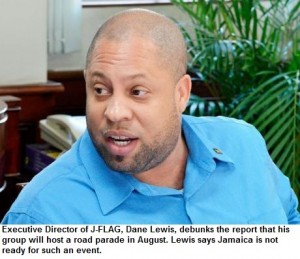


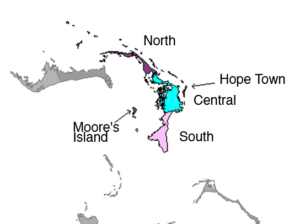 There is a parallel situation today in the Caribbean, in the Northern Bahamas community of Abaco in particular. They have battles on two fronts: A hurricane and a pandemic.
There is a parallel situation today in the Caribbean, in the Northern Bahamas community of Abaco in particular. They have battles on two fronts: A hurricane and a pandemic.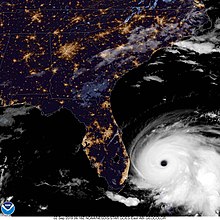
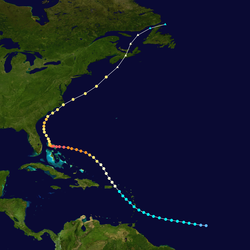
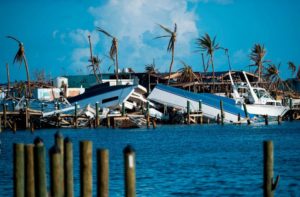 It’s been a little over a year since the prolonged and record-breaking
It’s been a little over a year since the prolonged and record-breaking 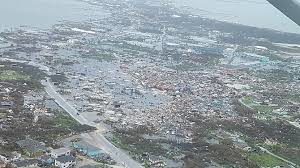 Respected for their storytelling techniques, industry contacts, and ability to spread awareness, Brown and his directorial partner Bobby Pura were hired by
Respected for their storytelling techniques, industry contacts, and ability to spread awareness, Brown and his directorial partner Bobby Pura were hired by 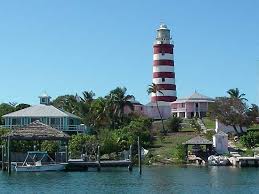 NASSAU, BAHAMAS — Central and South Abaco MP James Albury said because the construction industry represents a major hotspot for COVID-19, Abaco is in a “precarious situation” as reconstruction forges on.
NASSAU, BAHAMAS — Central and South Abaco MP James Albury said because the construction industry represents a major hotspot for COVID-19, Abaco is in a “precarious situation” as reconstruction forges on.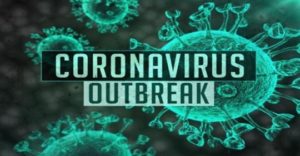 In the two weeks prior, 35 cases were recorded.
In the two weeks prior, 35 cases were recorded.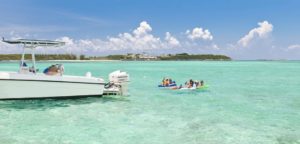 The Abaco chain of islands are a beautiful part of the Bahamas archipelago – the natural beauty flourishes. The Bahamas has been rocked by the pandemic but the country was in crisis even before COVID-19; this was due to structural deficiencies that were exacerbated by Agents of Change like Climate Change, globalization, technology and an Aging Diaspora. So the cupboards are now bare; this makes relief and refuge from these recent crises (COVID-19 and Dorian) untenable. Crisis within a crisis; failure on top of failure.
The Abaco chain of islands are a beautiful part of the Bahamas archipelago – the natural beauty flourishes. The Bahamas has been rocked by the pandemic but the country was in crisis even before COVID-19; this was due to structural deficiencies that were exacerbated by Agents of Change like Climate Change, globalization, technology and an Aging Diaspora. So the cupboards are now bare; this makes relief and refuge from these recent crises (COVID-19 and Dorian) untenable. Crisis within a crisis; failure on top of failure.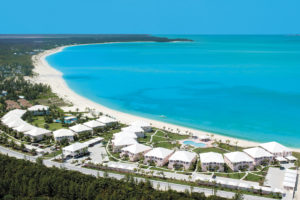 This is the urging right now; we need more than a string; we need to make the “rope” of our society stronger and better. We must … confederate, collaborate, collude, consolidate and convene:
This is the urging right now; we need more than a string; we need to make the “rope” of our society stronger and better. We must … confederate, collaborate, collude, consolidate and convene:

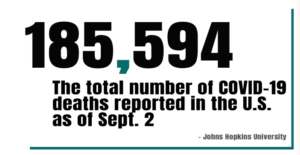
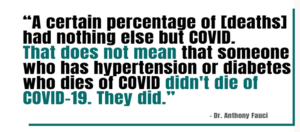 A closer look at the CDC data, meanwhile, reveals that many of the comorbidities listed by medical providers are complications caused by COVID-19 rather than chronic conditions that predated infection: heart failure, renal failure, respiratory failure, sepsis and so on.
A closer look at the CDC data, meanwhile, reveals that many of the comorbidities listed by medical providers are complications caused by COVID-19 rather than chronic conditions that predated infection: heart failure, renal failure, respiratory failure, sepsis and so on. There is this great Summer Festival in this small town in the US State of South Dakota, the Sturgis Bike Rally. This event is so impressive that the Caribbean has long been urged to look, listen and learn from this event model. In fact, the 2013 book Go Lean…Caribbean – introducing the Caribbean Union Trade Federation (CU) – dedicates one Appendix (Page 288) to Sturgis.
There is this great Summer Festival in this small town in the US State of South Dakota, the Sturgis Bike Rally. This event is so impressive that the Caribbean has long been urged to look, listen and learn from this event model. In fact, the 2013 book Go Lean…Caribbean – introducing the Caribbean Union Trade Federation (CU) – dedicates one Appendix (Page 288) to Sturgis. The COVID-19 pandemic is threatening many of our most cherished freedoms. We are told by the government not to travel. We are told we can’t gather for religious services. We are told we must wear masks, but we must not go to restaurants or stores. Our favorite sporting events, school activities and even graduations are cancelled. In some places, we are told we may not gather even for the most important things in life: the birth of a newborn or the passing of a loved one. At rallies protesting the lockdown, participants claim their constitutional rights are being violated and that the “illegal” government orders must be lifted. Who is right: the protestors or the government?Put another way, do the governments’ actions taking away certain rights, even if only temporarily, violate the Constitution? This article seeks to answer that question using a few real-life examples.
The COVID-19 pandemic is threatening many of our most cherished freedoms. We are told by the government not to travel. We are told we can’t gather for religious services. We are told we must wear masks, but we must not go to restaurants or stores. Our favorite sporting events, school activities and even graduations are cancelled. In some places, we are told we may not gather even for the most important things in life: the birth of a newborn or the passing of a loved one. At rallies protesting the lockdown, participants claim their constitutional rights are being violated and that the “illegal” government orders must be lifted. Who is right: the protestors or the government?Put another way, do the governments’ actions taking away certain rights, even if only temporarily, violate the Constitution? This article seeks to answer that question using a few real-life examples. —–
—– Sturgis is a city in Meade County, South Dakota, United States. The population was 6,627 as of the 2010 census. It is the county seat of Meade County and is named after General Samuel D. Sturgis. Sturgis is famous for being the location of one of the largest annual motorcycle events in the world, which [started in 1938 and] is held annually on the first full week of August. Motorcycle enthusiasts from around the world flock to this usually sleepy town during the Sturgis Motorcycle Rally.
Sturgis is a city in Meade County, South Dakota, United States. The population was 6,627 as of the 2010 census. It is the county seat of Meade County and is named after General Samuel D. Sturgis. Sturgis is famous for being the location of one of the largest annual motorcycle events in the world, which [started in 1938 and] is held annually on the first full week of August. Motorcycle enthusiasts from around the world flock to this usually sleepy town during the Sturgis Motorcycle Rally. Keeping up with the Joneses.
Keeping up with the Joneses. New Zealand, a modern small island nation, has become an emblematic champion of proper prevention and response to the
New Zealand, a modern small island nation, has become an emblematic champion of proper prevention and response to the 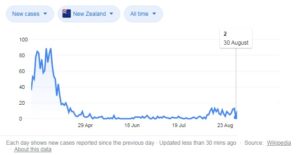 What else went into New Zealand’s pandemic response—and what could serve as guidance for other countries?
What else went into New Zealand’s pandemic response—and what could serve as guidance for other countries?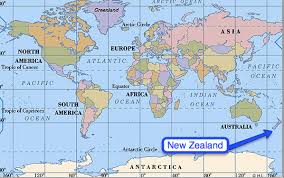
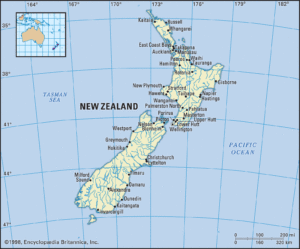

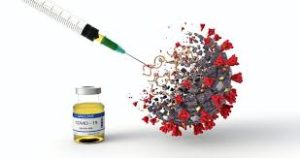 Is it worth it to “hang in there”? This is a question for us in the Caribbean as well. The world is enduring the Coronavirus COVID-19 pandemic crisis; it is wreaking havoc on the world’s economic engines – $250 Billion a day in losses – and Public Health deliveries. The only hope is a vaccine, of which there are a number of them in development (Phase I – Test Tubes, Phase II – Lab Mice, Phase III – Human Trials).
Is it worth it to “hang in there”? This is a question for us in the Caribbean as well. The world is enduring the Coronavirus COVID-19 pandemic crisis; it is wreaking havoc on the world’s economic engines – $250 Billion a day in losses – and Public Health deliveries. The only hope is a vaccine, of which there are a number of them in development (Phase I – Test Tubes, Phase II – Lab Mice, Phase III – Human Trials).  Please note: You will not be a Guinea Pig; those were the rodent-like creatures that functioned as Lab Mice. Also, you are not a part of the Human Trials. So at the point that the vaccine offer is made to you, many iterations of Quality Assurance would have already been executed.
Please note: You will not be a Guinea Pig; those were the rodent-like creatures that functioned as Lab Mice. Also, you are not a part of the Human Trials. So at the point that the vaccine offer is made to you, many iterations of Quality Assurance would have already been executed.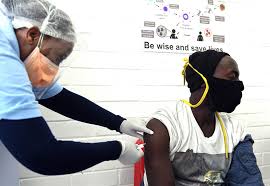 A big area of consideration must be past history:
A big area of consideration must be past history: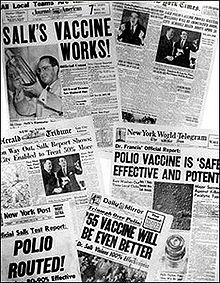
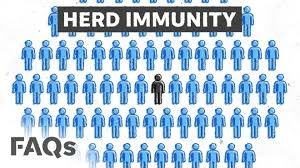


 We have no other choice but to contend with these challenges that come with participating in a vaccine program.
We have no other choice but to contend with these challenges that come with participating in a vaccine program. To be, or not to be, that is the question:
To be, or not to be, that is the question: When the going gets tough, the tough gets going – Old Adage
When the going gets tough, the tough gets going – Old Adage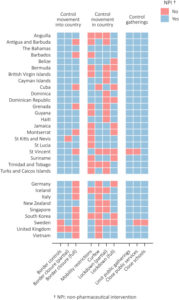

 My thimble runneth over! – Derisive Pun based on the Biblical expression “My cup runneth over”.
My thimble runneth over! – Derisive Pun based on the Biblical expression “My cup runneth over”. For many the answer can only be: My thimble runneth over!
For many the answer can only be: My thimble runneth over! NASSAU, BAHAMAS — Prime Minister Dr Hubert Minnis yesterday revealed the government is supporting the National Food Distribution Task Force with $1 million per week to assist more than 110,000 people.
NASSAU, BAHAMAS — Prime Minister Dr Hubert Minnis yesterday revealed the government is supporting the National Food Distribution Task Force with $1 million per week to assist more than 110,000 people.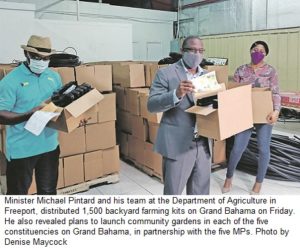 AGRICULTURE and Marine Resources Minister Michael Pintard relaunched the Backyard Farming Programme on Friday, distributing 1,500 backyard kits here on Grand Bahama.
AGRICULTURE and Marine Resources Minister Michael Pintard relaunched the Backyard Farming Programme on Friday, distributing 1,500 backyard kits here on Grand Bahama.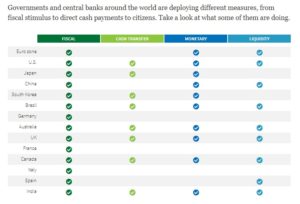
 Welcome to the … Bubble.
Welcome to the … Bubble. The 2020 NBA Bubble, also referred to as the Disney Bubble
The 2020 NBA Bubble, also referred to as the Disney Bubble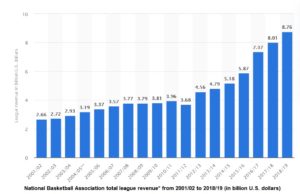
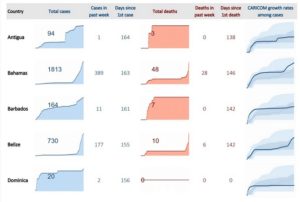
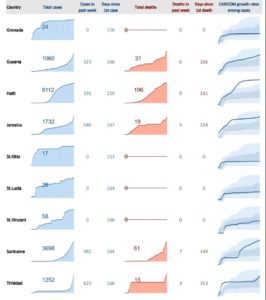
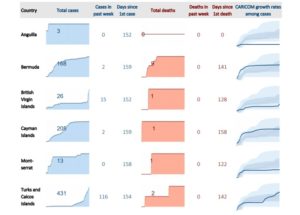
 The Battle 4 Atlantis is an early-season
The Battle 4 Atlantis is an early-season 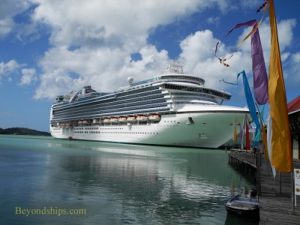 Royal Caribbean is considering
Royal Caribbean is considering 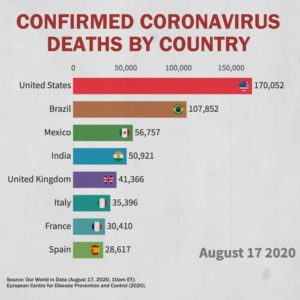
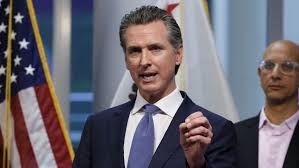 New guidance on coronavirus testing and travel issued by the Centers for Disease Control and Prevention drew strong pushback from California officials Wednesday.
New guidance on coronavirus testing and travel issued by the Centers for Disease Control and Prevention drew strong pushback from California officials Wednesday.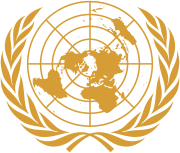 The World Health Organization (WHO) is a
The World Health Organization (WHO) is a  The WHO has played a leading role in several public health achievements, most notably the
The WHO has played a leading role in several public health achievements, most notably the 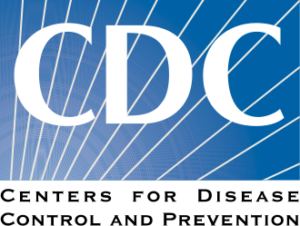 The Centers for Disease Control and Prevention (CDC) is a
The Centers for Disease Control and Prevention (CDC) is a  PAHO has scientific and technical expertise at its headquarters, in its 27 country offices, and its three Pan American centers, all working with the countries of the Americas in dealing with priority health issues. The health authorities of PAHO’s Member States set PAHO’s technical and administrative policies through its Governing Bodies. PAHO Member States include all 35 countries in the Americas;
PAHO has scientific and technical expertise at its headquarters, in its 27 country offices, and its three Pan American centers, all working with the countries of the Americas in dealing with priority health issues. The health authorities of PAHO’s Member States set PAHO’s technical and administrative policies through its Governing Bodies. PAHO Member States include all 35 countries in the Americas;